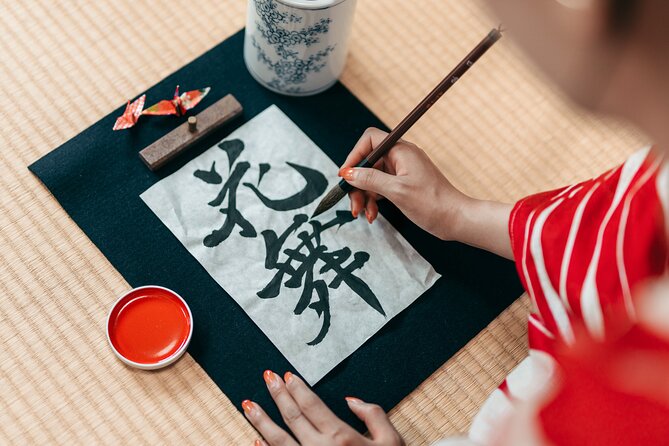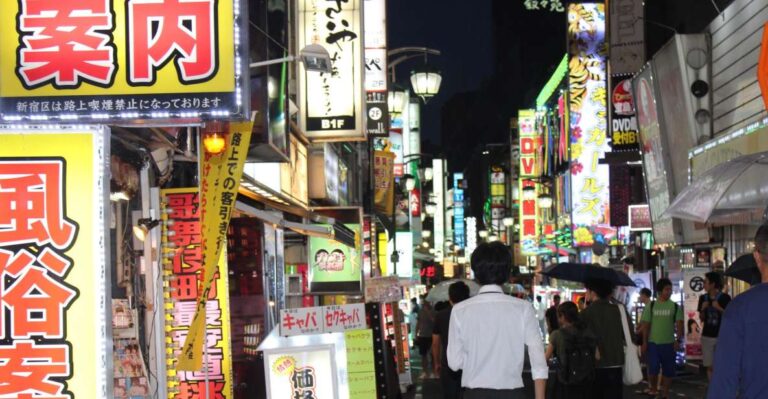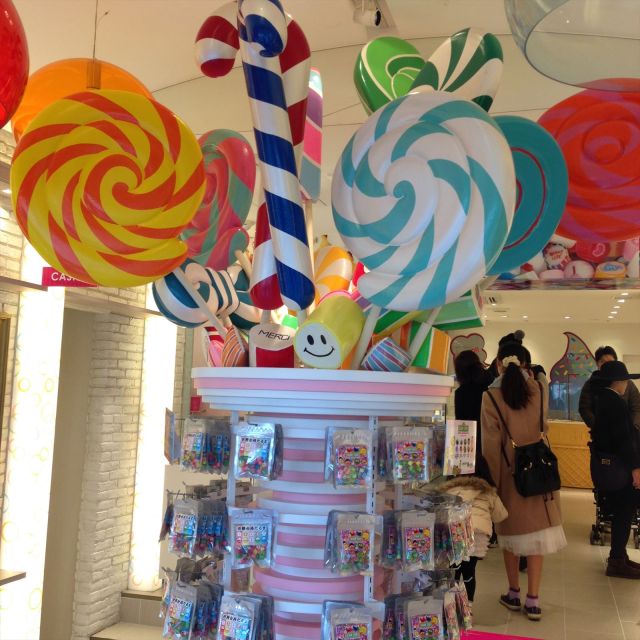In the enchanting city of Kyoto, Japan, travelers can indulge in a captivating 45-minute tea ceremony experience that immerses them in the vibrant cultural heritage of the region.
Despite its brevity, this traditional Japanese art form offers a profound and authentic glimpse into the spiritual practice of preparing and serving matcha, the powdered green tea.
Led by a licensed tea master from Urasenke, participants are warmly guided through the intricate steps of the ceremony while seated on the comfortable tatami floor mats.
Not only will guests witness the artistry behind the tea ceremony, but they’ll also gain valuable insights into its rich history and spiritual significance.
And to top it all off, participants get to make their own tea using the rules and techniques they’ve learned, and savor two flavors of Japanese green tea accompanied by traditional sweets.
This immersive tea ceremony experience in Kyoto is a remarkable journey into the heart of Japanese tradition.
Quick Takeaways
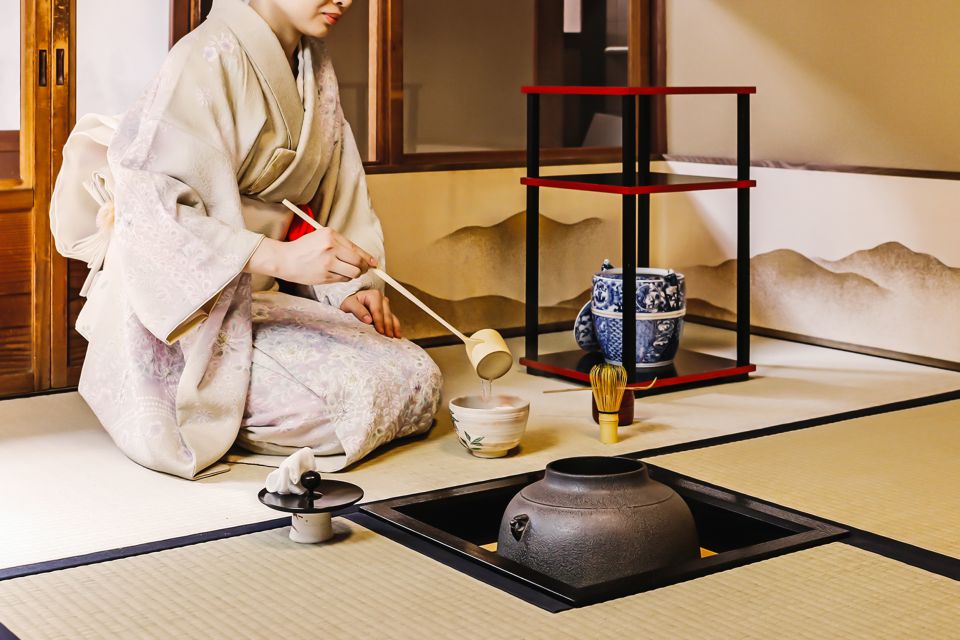
- The tea ceremony is a traditional Japanese experience that lasts for 45 minutes.
- Participants can learn about the history and spiritual role of the tea ceremony from a licensed tea master.
- The experience includes watching the ceremonial preparation of matcha and the opportunity to make tea oneself.
- Participants are provided with 2 flavors of Japanese green tea, traditional Japanese sweets, and the option to wear a kimono.
Ticket Details
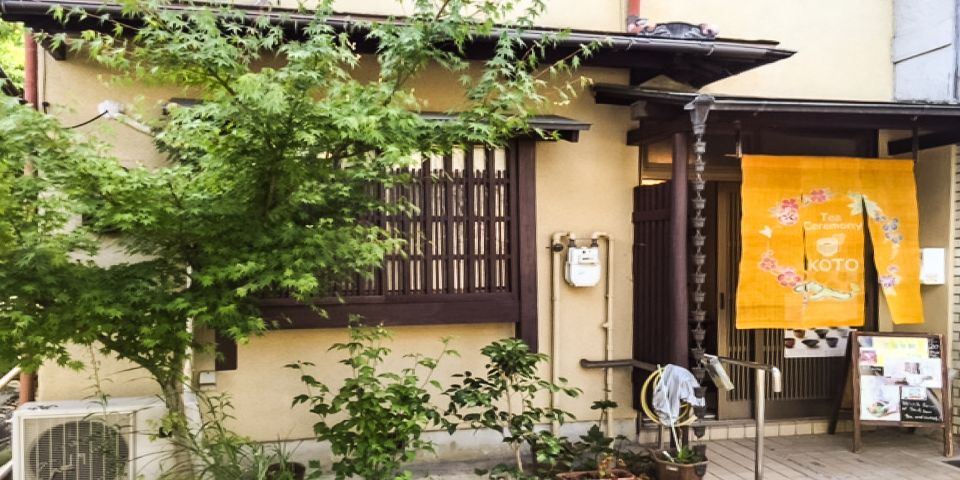
The ticket details for the Kyoto: 45-Minute Tea Ceremony Experience include free cancellation up to 24 hours in advance, flexible booking options, and a duration of 45 minutes. With this cancellation policy, you can feel at ease knowing that you have the flexibility to change your plans if needed.
When it comes to tea ceremony etiquette, there are certain rules to follow. During the ceremony, you’ll learn about the history and spiritual role of the tea ceremony from a licensed tea master. You’ll also have the opportunity to make tea yourself, following the traditional rules of the ceremony.
This immersive experience will take place on tatami, the traditional Japanese floor mat, and you’ll be met by an English-speaking host who’s a licensed tea master from Urasenke.
Get ready to learn about the rich traditions and rituals of the Japanese tea ceremony.
Experience Highlights
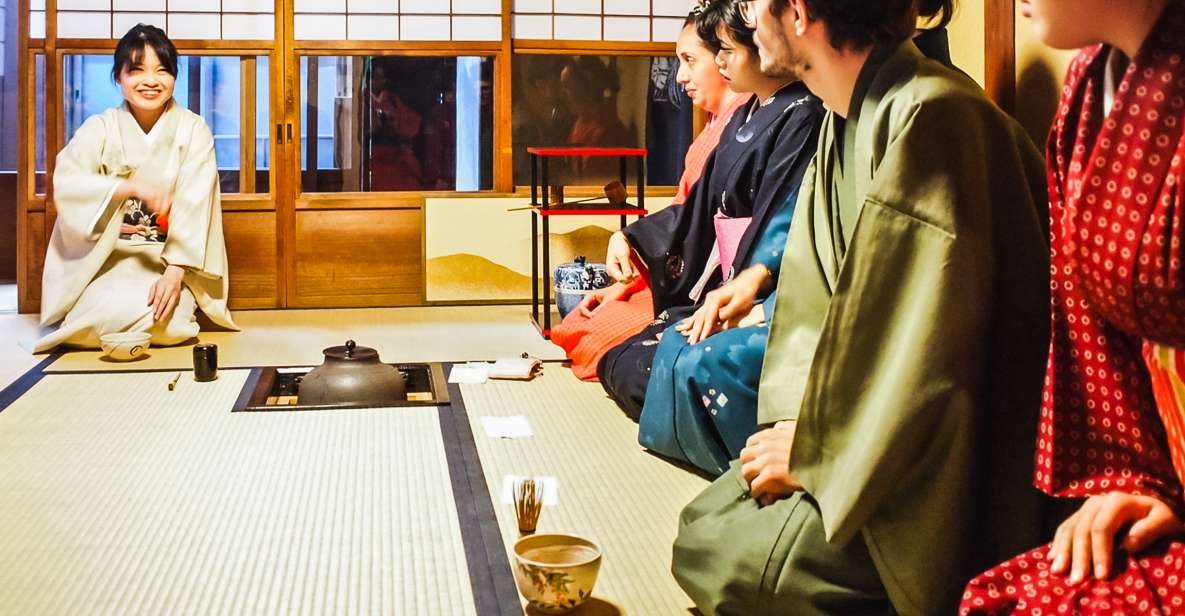
During the Kyoto: 45-Minute Tea Ceremony Experience, you will have the opportunity to experience a traditional Japanese tea ceremony and learn how to make tea according to the rules of the ceremony. This authentic experience highlights the cultural significance of the tea ceremony and allows participants to enjoy Japanese traditions.
Here are some of the highlights of the experience:
- Experience a traditional Japanese tea ceremony led by a licensed tea master.
- Hear captivating stories about the history and spiritual role of the tea ceremony.
- Learn the intricate art of making tea, following the precise steps and techniques.
- Enjoy the serene atmosphere and tranquil setting as you savor your own cup of tea.
This tea ceremony experience offers an authentic glimpse into Japanese culture, providing participants with a meaningful and enlightening experience. Enjoy the beauty and grace of the tea ceremony and discover the true essence of Japanese traditions.
Detailed Experience Description
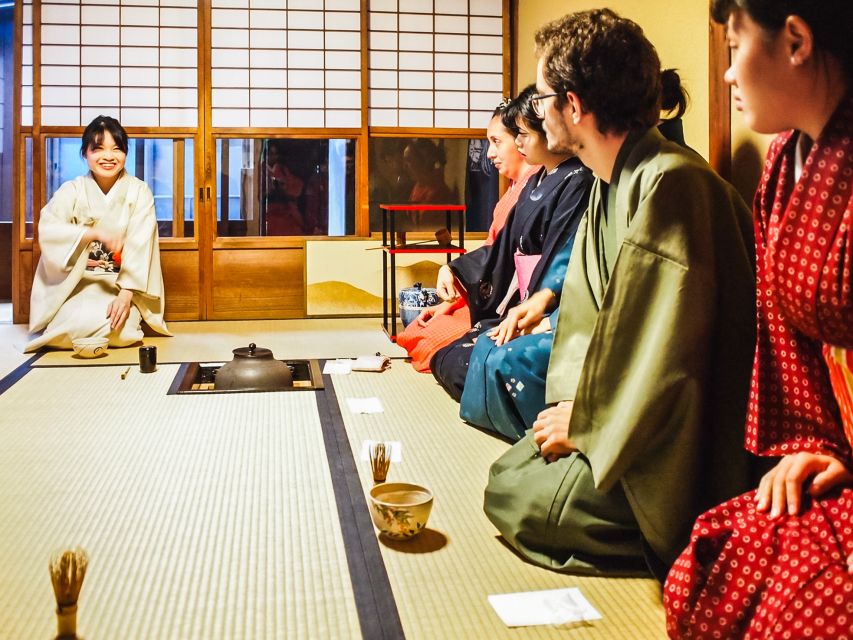
Participants in the Kyoto: 45-Minute Tea Ceremony Experience will be guided through a detailed and immersive tea ceremony led by a licensed tea master. As they take their place on the tatami, the traditional Japanese floor mat, they’ll be met by an English-speaking host who’s a licensed tea master from Urasenke.
They’ll have the opportunity to watch the ceremonial preparation of matcha, powdered green tea, and even try their hand at making tea themselves. Throughout the experience, they’ll learn about the history and spiritual role of the tea ceremony, gaining insight into its cultural significance.
The tea preparation process will be explained in detail, allowing participants to fully appreciate the intricacies and traditions of this ancient art form.
Inclusions
As part of the Kyoto: 45-Minute Tea Ceremony Experience, you will enjoy the following inclusions:
- 2 flavors of Japanese green tea: Enjoy the rich flavors of traditional Japanese tea as you savor two different varieties.
- Traditional Japanese sweets: Indulge in delicious confections that perfectly complement the tea, adding a touch of sweetness to your culture.
- Hotel pick-up: Conveniently start your tea ceremony experience with a hassle-free transportation service that brings you directly to the tea house.
- Hair setting: Enhance your authenticity by having your hair professionally styled in a traditional manner, allowing you to fully embrace the customs of the tea ceremony.
These inclusions not only provide a taste of the exquisite tea and sweets but also ensure that participants are fully immersed in the traditional customs and cultural experience of the tea ceremony.
Participants and Meeting Details
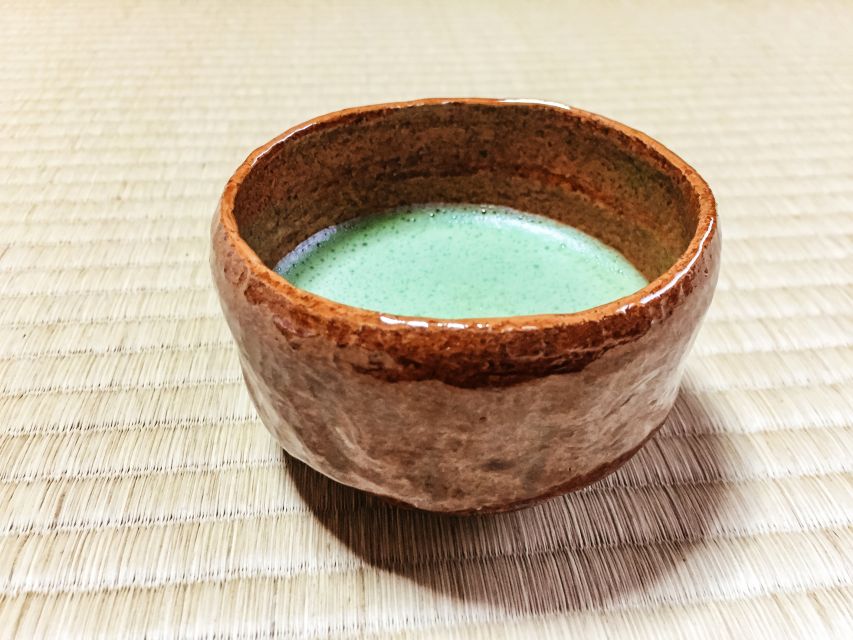
To ensure a seamless tea ceremony experience, participants of the Kyoto: 45-Minute Tea Ceremony will need to meet at the designated meeting point, Tea Ceremony Koto, an orange-curtained building located just a 1-minute walk from the Kinkakuji-Michi city bus stop.
This meeting location provides easy access for guests arriving by bus, making it convenient for everyone. For those who’ve reserved the Kimono add-on, it’s recommended to arrive 20 minutes early to allow time for dressing in the traditional Japanese garment.
The Tea Ceremony Koto is a charming and authentic space where you will enjoy the rich traditions of Japanese tea culture. From the moment they step through the doors, they’ll be transported to a world of grace, tranquility, and reverence.
Review Summary
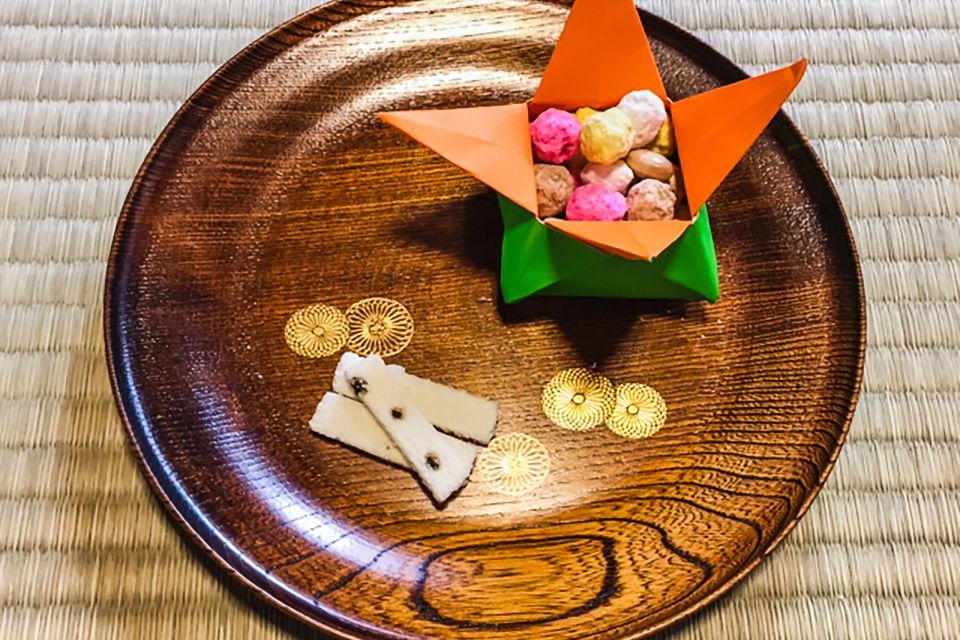
The review summary for the Kyoto: 45-Minute Tea Ceremony Experience showcases the overall satisfaction of participants, with high ratings for the guide, value for money, service, and organization.
The tea ceremony etiquette was explained and performed excellently by the tea master, who also provided insights into the history and spiritual role of the tea ceremony.
Participants described the experience as authentic and intimate, with a cozy and nice space adding to the ambiance.
The opportunity to get dressed in a traditional kimono before the ceremony added to the authenticity and immersion.
The tea provided during the ceremony was of excellent quality, with participants praising its taste.
Plus, the inclusion of traditional Japanese sweets enhanced the overall experience, providing a delightful combination of flavors.
Background
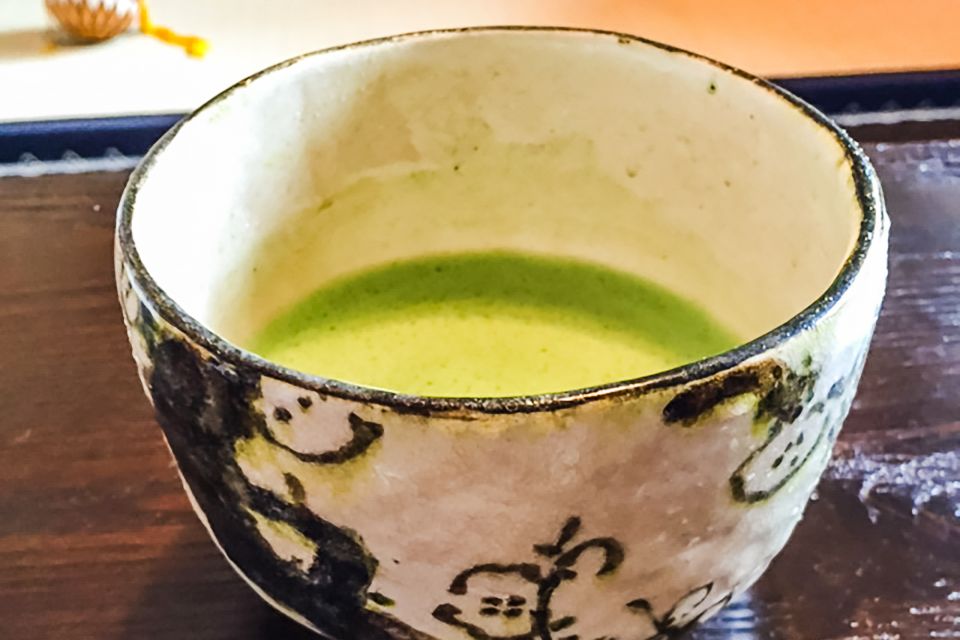
The tea ceremony in Kyoto is steeped in rich cultural heritage and holds significant spiritual importance. With a history dating back to the 9th century, the tea ceremony, also known as ‘sado’ or ‘chado,’ has evolved into a highly revered practice that embodies the essence of Japanese hospitality and aesthetics.
This ancient tradition is deeply rooted in Zen Buddhism and reflects the principles of harmony, respect, purity, and tranquility. Through the meticulous preparation and serving of matcha, powdered green tea, participants experience a profound sense of mindfulness and connection to nature.
The tea ceremony isn’t just a mere ritual, but a profound cultural experience that showcases the grace, elegance, and refinement of Japanese culture. By engaging in this time-honored practice, participants gain a deeper understanding of Japan’s cultural significance and its enduring commitment to preserving traditions.
Directions
Upon arriving at the Tea Ceremony Koto (茶道体験古都), visitors will be greeted by an English-speaking host and guided through the traditional tea ceremony experience. The Tea Ceremony Koto is conveniently located near public transportation, making it easily accessible for travelers.
However, for those who prefer alternative meeting points, arrangements can be made for hotel pick-up. The meeting point itself is just a 1-minute walk from the Kinkakuji-Michi city bus stop, ensuring a seamless journey for guests. Whether you choose to arrive by bus or opt for the convenience of hotel pick-up, getting to the Tea Ceremony Koto is a breeze.
Enjoy the rich traditions of Kyoto and embark on this unforgettable tea ceremony experience.
Frequently Asked Questions
Can I Participate in the Tea Ceremony if I Don’t Speak Japanese?
Participants can fully participate in the tea ceremony experience without speaking Japanese. An English-speaking host, who is a licensed tea master, will guide and explain the ceremony. Language barrier won’t hinder the enjoyment of this traditional Japanese cultural experience.
Is There a Dress Code for the Tea Ceremony?
There is no specific dress code for the tea ceremony, allowing participants to feel comfortable while seeing the experience. Plus, language proficiency is not necessary as an English-speaking guide will be present to assist.
Can I Bring My Own Tea to the Ceremony?
No, participants cannot bring their own tea to the ceremony. It is important to respect tea ceremony etiquette and follow the traditions set by the licensed tea master.
Is the Tea Ceremony Suitable for Children?
The tea ceremony is suitable for children as it provides a unique opportunity for them to learn about Japanese culture and etiquette. Including children in the experience can foster respect, mindfulness, and appreciation for tradition.
Can I Take Photos During the Tea Ceremony?
Yes, participants are allowed to take photos during the tea ceremony. However, it is important to follow the etiquette guidelines provided by the tea master. Capture the beauty and grace of this traditional experience.
The Sum Up
In just 45 minutes, visitors to Kyoto can enjoy the rich cultural heritage of the city through a tea ceremony experience. Led by a licensed tea master, participants are guided through the intricate steps of the ceremony, learning about its history and spiritual significance.
They even have the chance to make their own tea using the techniques they’ve learned.
With its authentic exposure to Japanese culture and knowledgeable tea master, this tea ceremony experience promises to be a truly memorable journey into the heart of Japanese tradition.


